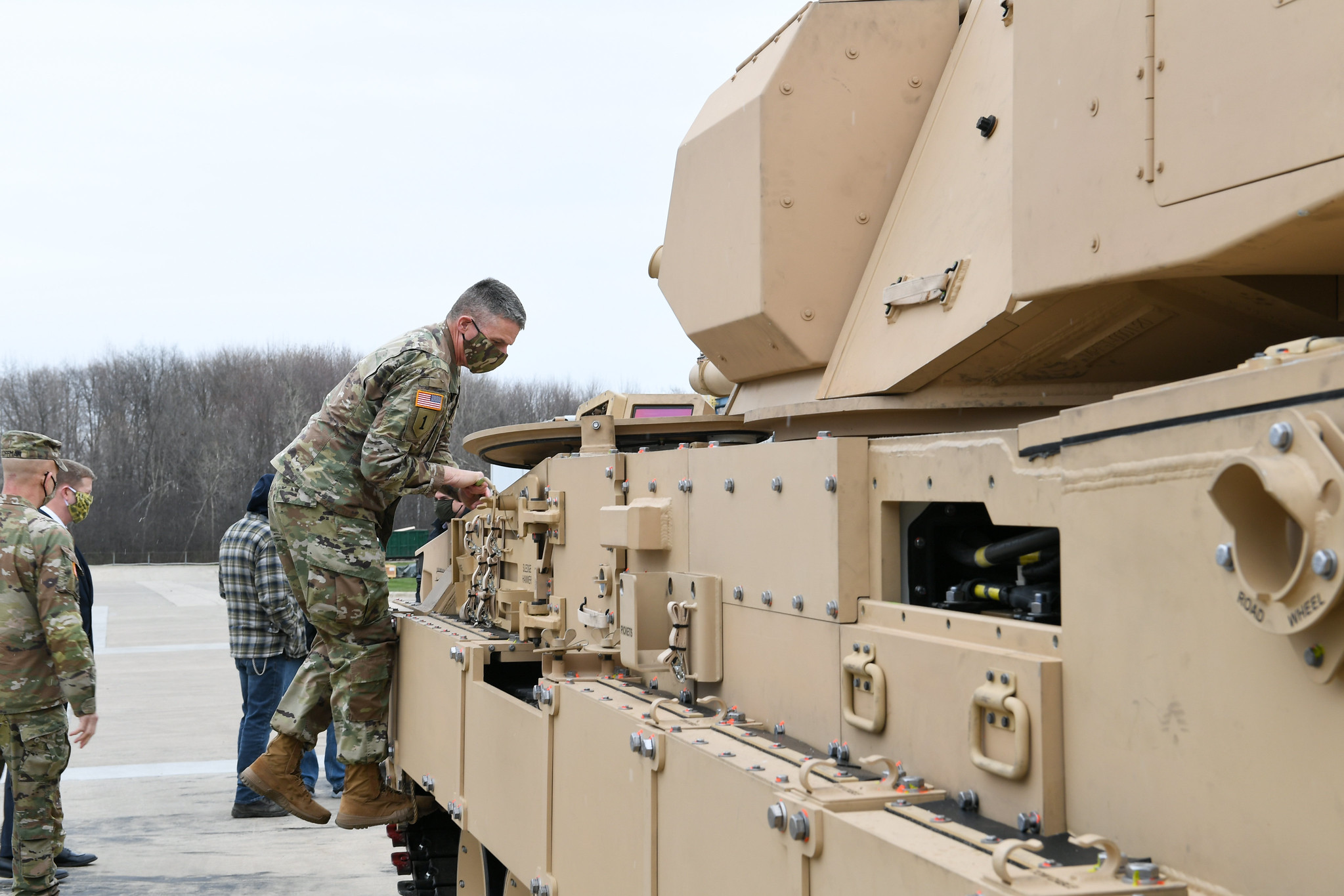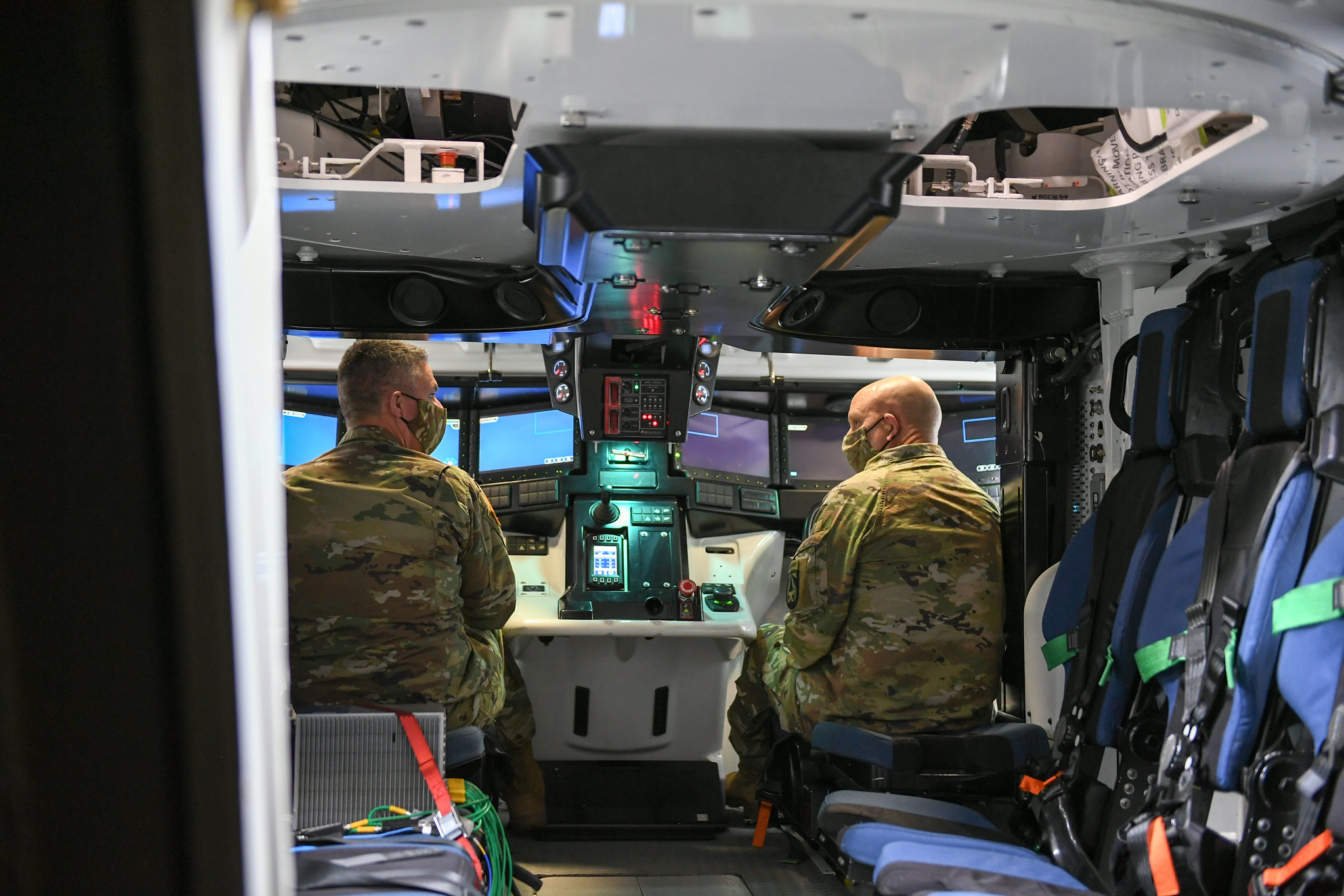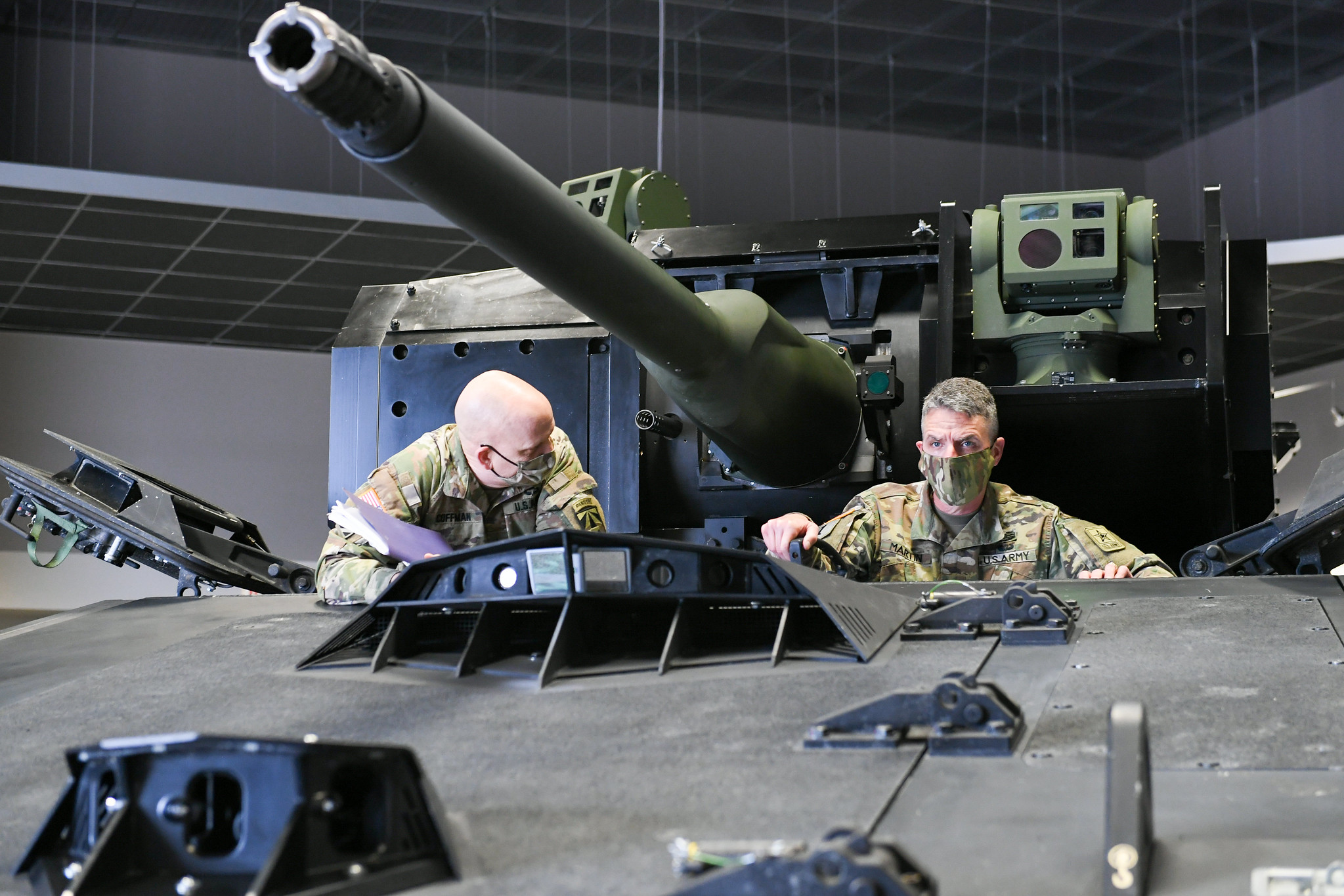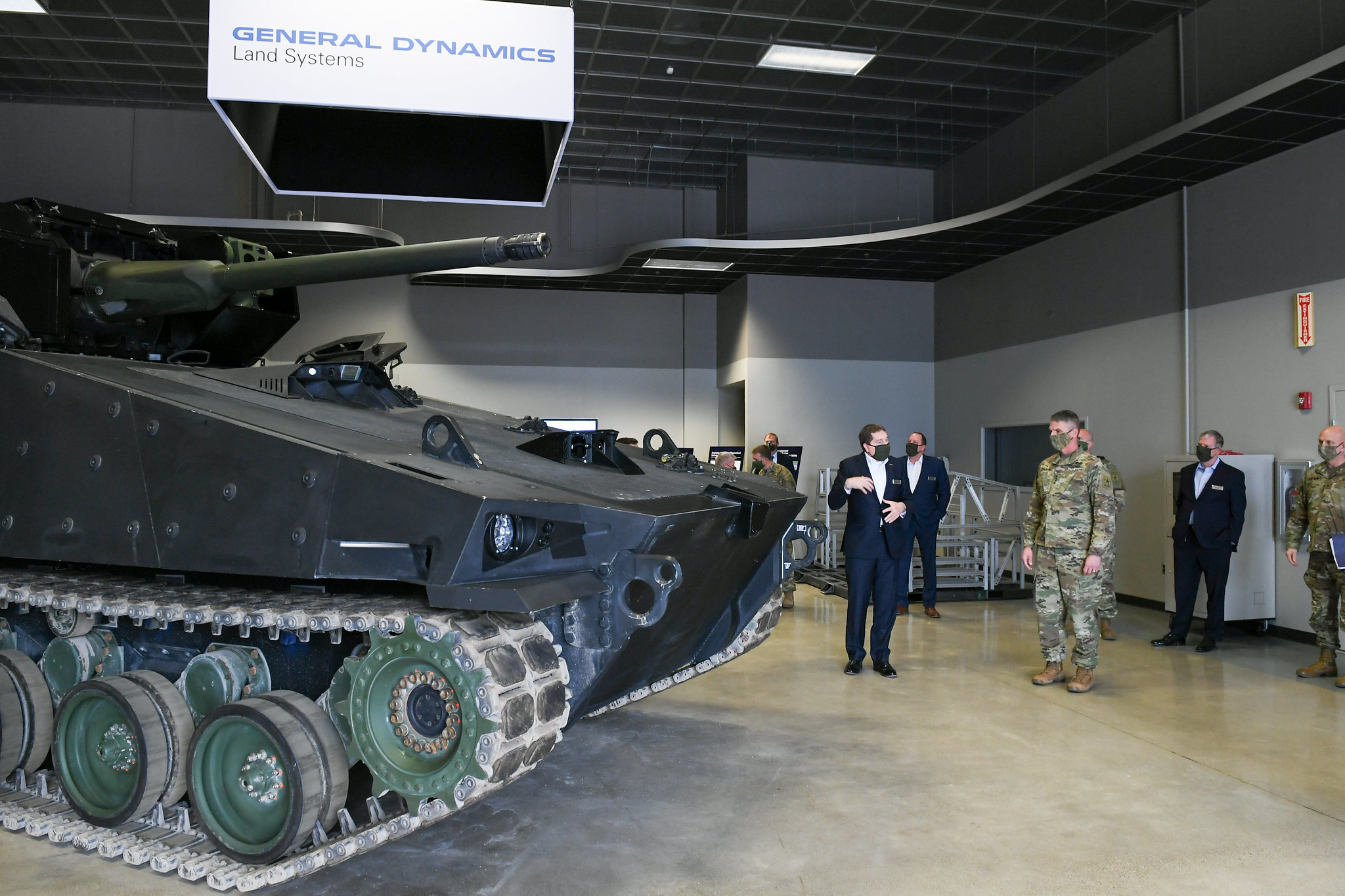Main Battle Tanks and Armour Technology
- Thread starter Rage
- Start date
More options
Who Replied?- Joined
- May 5, 2011
- Messages
- 12,846
- Likes
- 8,558
U.S. Army continues testing of Abrams tank latest version
- Joined
- May 5, 2011
- Messages
- 12,846
- Likes
- 8,558
U.S. Army provides test details of latest Abrams tank version

Currently, the new version of the legendary tank called the M1A2 Systems Engineering Plan (SEP) version 3 (v3), is being put through its paces across the more than 200 miles of rugged road courses at U.S. Army Yuma Proving Ground, all to ensure it functions as it should wherever in the world it could be called on to serve.
“We have multiple test courses here that simulate different types of roads we might encounter in different areas of the world,” said Robert Wilson, test officer. “We test these vehicles’ durability for thousands of miles across these various road surfaces.”
Except for the exterior, today’s SEPv3 would be almost unrecognizable to the tankers who served on its earliest incarnation. YPG testing has touched virtually every aspect of this behemoth, and in a variety of situations that simulate the less-than-ideal conditions Soldiers might encounter in combat.
“We put it in situations where the vehicle is on a slope that would cause all the fuel to settle on one end to see if the fuel pump can still pull fuel through the system and adequately restart it after sitting awhile,” said Wilson. “We run side slopes in a sinusoidal pattern and check things like the fuel pump and brakes.”
The list of improvements is lengthy: improved fire control electronics mean the SEPv3’s gun can shoot faster and more accurately; the engine, drivetrain, and tracks have been updated for higher performance and to support the platform’s weight increase; it may even sport hubcaps and road arms manufactured by way of 3D printing, a facet that is under test here at YPG.
“As the technology advances, the tanks have to advance as well,” said Martin Velazquez, test team lead. “The SEPv3s have a lot more onboard diagnostics than earlier iterations: they have removable screens that carry the tech manuals that can accomplish a lot of diagnostics on the vehicles without taking it to the shop.”
The newest Abrams is also more heavily armored than previous versions, which necessitates improvements in the power system and suspension.
“A lot of the extra weight is from the kits that get installed, such as the Abrams Armor Reactive Tiles that are installed in close-combat situations,” said Velazquez.
For all its dazzling technology, however, the newest Abrams remains true to its original conception: overwhelming power and overmatch against any adversary.
“The purpose of testing is to get it ready for combat,” said Wilson. Ultimately it is going to end up in the warfighter’s hands and we want it to be as perfect as it can be and perform flawlessly.”
https://defence-blog.com/army/u-s-army-provides-test-details-of-latest-abrams-tank-version.html

Currently, the new version of the legendary tank called the M1A2 Systems Engineering Plan (SEP) version 3 (v3), is being put through its paces across the more than 200 miles of rugged road courses at U.S. Army Yuma Proving Ground, all to ensure it functions as it should wherever in the world it could be called on to serve.
“We have multiple test courses here that simulate different types of roads we might encounter in different areas of the world,” said Robert Wilson, test officer. “We test these vehicles’ durability for thousands of miles across these various road surfaces.”
Except for the exterior, today’s SEPv3 would be almost unrecognizable to the tankers who served on its earliest incarnation. YPG testing has touched virtually every aspect of this behemoth, and in a variety of situations that simulate the less-than-ideal conditions Soldiers might encounter in combat.
“We put it in situations where the vehicle is on a slope that would cause all the fuel to settle on one end to see if the fuel pump can still pull fuel through the system and adequately restart it after sitting awhile,” said Wilson. “We run side slopes in a sinusoidal pattern and check things like the fuel pump and brakes.”
The list of improvements is lengthy: improved fire control electronics mean the SEPv3’s gun can shoot faster and more accurately; the engine, drivetrain, and tracks have been updated for higher performance and to support the platform’s weight increase; it may even sport hubcaps and road arms manufactured by way of 3D printing, a facet that is under test here at YPG.
“As the technology advances, the tanks have to advance as well,” said Martin Velazquez, test team lead. “The SEPv3s have a lot more onboard diagnostics than earlier iterations: they have removable screens that carry the tech manuals that can accomplish a lot of diagnostics on the vehicles without taking it to the shop.”
The newest Abrams is also more heavily armored than previous versions, which necessitates improvements in the power system and suspension.
“A lot of the extra weight is from the kits that get installed, such as the Abrams Armor Reactive Tiles that are installed in close-combat situations,” said Velazquez.
For all its dazzling technology, however, the newest Abrams remains true to its original conception: overwhelming power and overmatch against any adversary.
“The purpose of testing is to get it ready for combat,” said Wilson. Ultimately it is going to end up in the warfighter’s hands and we want it to be as perfect as it can be and perform flawlessly.”
https://defence-blog.com/army/u-s-army-provides-test-details-of-latest-abrams-tank-version.html
- Joined
- May 5, 2011
- Messages
- 12,846
- Likes
- 8,558
Pentagon releases new details of Abrams upgrade program
The M1A2 SEP v3 would be almost unrecognizable to the tankers who served on its earliest incarnation. The new version could boast of improved fire control electronics mean the SEPv3’s gun can shoot faster and more accurately; the engine, drivetrain, and tracks have been updated for higher performance and to support the platform’s weight increase; it may even sport hubcaps and road arms manufactured by way of 3D printing.
The upgrades also include survivability enhancements including Next Evolution and advanced armor and reduction in vulnerability to Improvised explosive device (IED) threats.
According to the report, DOT&E approved an updated Abrams M1A2 SEP v3 Test and Evaluation Master Plan (TEMP) on December 28, 2018. The updated TEMP included revisions to planned Production Qualification Test events and the Follow-on operational Test and Evaluation scope.
Also added that in Fiscal Year 19, the Army concluded the M1A2 SEPv3 full-up system-level live fire testing. To complete the survivability assessment of the M1A2 SEPv3, the Army needs to execute the remaining live fire test series focused on addressing combat-induced vulnerabilities of stored ammunition and the modeling and simulation (M&S) effort focused on characterizing armor effectiveness across the operational envelope.
The Army expects to complete the M1A2 SEPv3 Live Fire Test and Evaluation program in the first quarter of FY20.
In FY19, the Army completed Full-Up, System-Level (FUSL) testing to assess the survivability of a combat-ready tank against IEDs, mines, and direct- and indirect-fire. The FUSL test series included 20 tests on 3 production-representative tanks.
Ammunition Compartment testing began in the fourth quarter of FY19 and will complete in 1Q FY20. These tests examine threats that perforate the tank armor and strike the ammunition compartment to assess the reaction of the stowed ammunition, and any resulting impacts to the crew.
The Abrams M1A2 SEPv3 survivability evaluation across operational engagement conditions will depend on live fire test data and models and simulations data. The Army is working on the validation and verification of the models and simulations tools critical to this evaluation.
https://defence-blog.com/army/pentagon-releases-new-details-of-abrams-upgrade-program.html
The M1A2 SEP v3 would be almost unrecognizable to the tankers who served on its earliest incarnation. The new version could boast of improved fire control electronics mean the SEPv3’s gun can shoot faster and more accurately; the engine, drivetrain, and tracks have been updated for higher performance and to support the platform’s weight increase; it may even sport hubcaps and road arms manufactured by way of 3D printing.
The upgrades also include survivability enhancements including Next Evolution and advanced armor and reduction in vulnerability to Improvised explosive device (IED) threats.
According to the report, DOT&E approved an updated Abrams M1A2 SEP v3 Test and Evaluation Master Plan (TEMP) on December 28, 2018. The updated TEMP included revisions to planned Production Qualification Test events and the Follow-on operational Test and Evaluation scope.
Also added that in Fiscal Year 19, the Army concluded the M1A2 SEPv3 full-up system-level live fire testing. To complete the survivability assessment of the M1A2 SEPv3, the Army needs to execute the remaining live fire test series focused on addressing combat-induced vulnerabilities of stored ammunition and the modeling and simulation (M&S) effort focused on characterizing armor effectiveness across the operational envelope.
The Army expects to complete the M1A2 SEPv3 Live Fire Test and Evaluation program in the first quarter of FY20.
In FY19, the Army completed Full-Up, System-Level (FUSL) testing to assess the survivability of a combat-ready tank against IEDs, mines, and direct- and indirect-fire. The FUSL test series included 20 tests on 3 production-representative tanks.
Ammunition Compartment testing began in the fourth quarter of FY19 and will complete in 1Q FY20. These tests examine threats that perforate the tank armor and strike the ammunition compartment to assess the reaction of the stowed ammunition, and any resulting impacts to the crew.
The Abrams M1A2 SEPv3 survivability evaluation across operational engagement conditions will depend on live fire test data and models and simulations data. The Army is working on the validation and verification of the models and simulations tools critical to this evaluation.
https://defence-blog.com/army/pentagon-releases-new-details-of-abrams-upgrade-program.html
- Joined
- Dec 24, 2015
- Messages
- 6,510
- Likes
- 7,217
the engine remains a turbine ?Pentagon releases new details of Abrams upgrade program
The M1A2 SEP v3 would be almost unrecognizable to the tankers who served on its earliest incarnation. The new version could boast of improved fire control electronics mean the SEPv3’s gun can shoot faster and more accurately; the engine, drivetrain, and tracks have been updated for higher performance and to support the platform’s weight increase; it may even sport hubcaps and road arms manufactured by way of 3D printing.
The upgrades also include survivability enhancements including Next Evolution and advanced armor and reduction in vulnerability to Improvised explosive device (IED) threats.
According to the report, DOT&E approved an updated Abrams M1A2 SEP v3 Test and Evaluation Master Plan (TEMP) on December 28, 2018. The updated TEMP included revisions to planned Production Qualification Test events and the Follow-on operational Test and Evaluation scope.
Also added that in Fiscal Year 19, the Army concluded the M1A2 SEPv3 full-up system-level live fire testing. To complete the survivability assessment of the M1A2 SEPv3, the Army needs to execute the remaining live fire test series focused on addressing combat-induced vulnerabilities of stored ammunition and the modeling and simulation (M&S) effort focused on characterizing armor effectiveness across the operational envelope.
The Army expects to complete the M1A2 SEPv3 Live Fire Test and Evaluation program in the first quarter of FY20.
In FY19, the Army completed Full-Up, System-Level (FUSL) testing to assess the survivability of a combat-ready tank against IEDs, mines, and direct- and indirect-fire. The FUSL test series included 20 tests on 3 production-representative tanks.
Ammunition Compartment testing began in the fourth quarter of FY19 and will complete in 1Q FY20. These tests examine threats that perforate the tank armor and strike the ammunition compartment to assess the reaction of the stowed ammunition, and any resulting impacts to the crew.
The Abrams M1A2 SEPv3 survivability evaluation across operational engagement conditions will depend on live fire test data and models and simulations data. The Army is working on the validation and verification of the models and simulations tools critical to this evaluation.
https://defence-blog.com/army/pentagon-releases-new-details-of-abrams-upgrade-program.html
- Joined
- May 5, 2011
- Messages
- 12,846
- Likes
- 8,558
the engine remains a turbine ?
Most likely. A powerplant replacement would be a big change for the US Army.
- Joined
- Dec 24, 2015
- Messages
- 6,510
- Likes
- 7,217
Sure, but it's very fuel greedy. A logistic nighmare.Most likely. A powerplant replacement would be a big change for the US Army.
- Joined
- May 5, 2011
- Messages
- 12,846
- Likes
- 8,558
There are pros and cons for both turbine and diesel engines. So far the US military has not bogged down in any major offensive using M1.Sure, but it's very fuel greedy. A logistic nighmare.
SKC
New Member
- Joined
- Aug 16, 2014
- Messages
- 9,483
- Likes
- 32,249
Logistics has always been strong point of US Army. Whatever amount of fuel it consumes, there never any shortage to arise.Sure, but it's very fuel greedy. A logistic nighmare.
WolfPack86
New Member
- Joined
- Oct 20, 2015
- Messages
- 10,571
- Likes
- 16,993
Nigeria start getting VT-4 tank from China.
WARREN SS
New Member
- Joined
- Oct 12, 2013
- Messages
- 5,570
- Likes
- 20,878
Army Will Phase Out All T-72 in favor of T-90'sFor India
......................................
No Can Swell Upto 2500-3000
Akim
New Member
- Joined
- Jun 14, 2012
- Messages
- 10,353
- Likes
- 8,645
This is the logic, but the modernized T-72M is not much inferior to the T-90A. New tanks are overpayments, but such volumes of purchases are politics. And politics always prevails over rationality.Army Will Phase Out All T-72 in favor of T-90's
No Can Swell Upto 2500-3000
- Joined
- May 5, 2011
- Messages
- 12,846
- Likes
- 8,558
General Dynamics unveils its newest Mobile Protection Firepower (MPF) combat vehicle

The U.S. Army expects that new ‘light tank’ will be a 38-ton tracked armored vehicle capable to provide Soldiers with speed, protection, lethality and the ability to wage a multidomain battle, working in concert with other ground forces to overwhelm the enemy with multiple simultaneous challenges.
The new “light tank” will have improved armor and a 105 mm main gun.



 defence-blog.com
defence-blog.com
This tank would be more lethan if armed with XM360 light 120mm tank gun.

The U.S. Army expects that new ‘light tank’ will be a 38-ton tracked armored vehicle capable to provide Soldiers with speed, protection, lethality and the ability to wage a multidomain battle, working in concert with other ground forces to overwhelm the enemy with multiple simultaneous challenges.
The new “light tank” will have improved armor and a 105 mm main gun.



General Dynamics unveils its newest MPF combat vehicle
General Dynamics Land Systems, a business unit of General Dynamics, has demonstrated its newest combat vehicle that developed for the U.S Army Mobile Protected Firepower program. The new vehicle was showcased during visit of Secretary of the Army, Hon. Ryan D. McCarthy, and Vice Chief of Staff...
This tank would be more lethan if armed with XM360 light 120mm tank gun.
- Joined
- May 5, 2011
- Messages
- 12,846
- Likes
- 8,558
More photos of GLDS' MPF Combat vehicle contender:








shuvo@y2k10
New Member
- Joined
- Apr 4, 2010
- Messages
- 2,653
- Likes
- 6,710
Chinese made a similar light tank Type 15 or VT-5 armed with a 105 mm gun. Weight is around 33-36 tons. This is designed as a tank from the begining rather than an ICV hull mated with a modified tank turret like the GDLS MPF. Hence, it is more compact with likely better frontal protection, but cannot carry troops.

Years ago DRDO also did a similar light tank experiment. They combined a BMP-1 chassis and mated it with a modified GIAT turret, featuring a 105 mm gun. But the army rejected it.


DRDO also experimented with BMP chassis mated to modified Vijyanta turret.

Needless to say, these projects can be easily revived and fitted with modern electronics and modular armor packages developed for the Arjun MBT programme, if a requirement arise, especially for deployement along LAC, opposite to Type-15 of PLA. But army has decided to go for deployment of heavier T-72 and T-90S, equipped with heavy ERA, considering the presence of ATGM among Chinese troops.

Years ago DRDO also did a similar light tank experiment. They combined a BMP-1 chassis and mated it with a modified GIAT turret, featuring a 105 mm gun. But the army rejected it.
DRDO also experimented with BMP chassis mated to modified Vijyanta turret.
Needless to say, these projects can be easily revived and fitted with modern electronics and modular armor packages developed for the Arjun MBT programme, if a requirement arise, especially for deployement along LAC, opposite to Type-15 of PLA. But army has decided to go for deployment of heavier T-72 and T-90S, equipped with heavy ERA, considering the presence of ATGM among Chinese troops.
| Thread starter | Similar threads | Forum | Replies | Date |
|---|---|---|---|---|
| W | Pakistan show interest in Ukraine Oplot main battle tank | Pakistan | 0 | |
|
|
T-80UD Main Battle Tank - A Pakistani Perspective | Defence Wiki | 0 | |
| W | Taiwan will purchase 108 M1A2 Abrams main battle tanks from U.S. | Land Forces | 6 | |
| W | Pakistan Procuring 300 T-90 Main Battle Tanks from Russia. | Pakistan | 68 |
Articles
-
India Strikes Back: Operation Snow Leopard - Part 1
- mist_consecutive
- Replies: 9
-
Aftermath Galwan : Who holds the fort ?
- mist_consecutive
- Replies: 33
-
The Terrible Cost of Presidential Racism(Nixon & Kissinger towards India).
- ezsasa
- Replies: 40
-
Modern BVR Air Combat - Part 2
- mist_consecutive
- Replies: 22
-
Civil & Military Bureaucracy and related discussions
- daya
- Replies: 32

